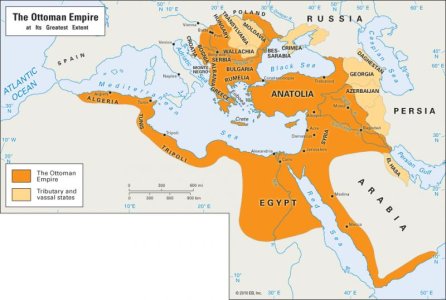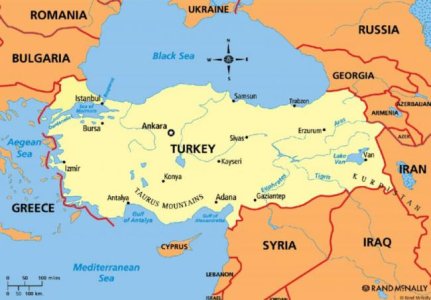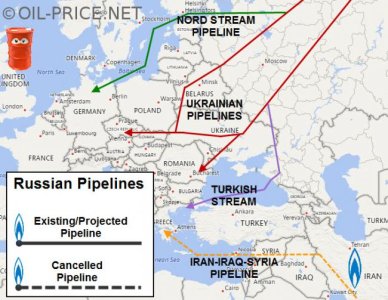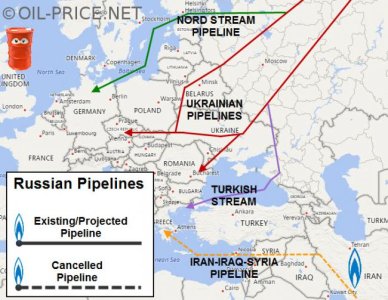This is a continuation of my previous post dealing with a segment of the FSB whistleblowers letter. As I've said all along, I have no way of knowing for sure if this letter is legit or a forgery. What I
do know is that just about everything he has predicted has either come to pass, or is about to. And everything he has voiced possible concerns about, are things that very well could or should keep Russian foreign and domestic policymakers up at night. Based on the intelligence with which he makes his points and the way he speaks so matter of factly and colloquially about complex issues and historical precedents...which he assumes his coworkers in the FSB, as fellow Russians also, would readily grasp...leads me to believe that this document is legit. And even if it were not, it's a very useful tool in seeing how this war is playing out in real time and where it's likely to go. If it's fake, it would seem to have been channeled from Nostradamus himself.
I hope OP (the Russian FSB author of this letter) is not fired, under house arrest, or worse... The latest word is that Putin has dropped the axe down
hard on the FSB and its agents, who he blames for faulty intelligence leading up to the disastrous start of the war.
Last I left off from my previous post I was talking about the Russian experience of the beginning of the last century. I was explaining that historians debate to this day (and likely will do so into the future) over whether WWI could have been avoided altogether, or kept to a very low-level regional conflict in the Balkans, or prevented through diplomacy...if Tsar Nicholas II had not begun mobilizing his army in 1914. (Making his the first major European country to do so.)
Did the tsar's mobilization actually provoke and/or panic the other countries into starting WWI? Or were Germany and Austria-Hungary eventually going to launch a global war regardless? (Which in the latter case, Russia was absolutely right to have started mobilizing immediately.)
So we pick up from there.
**************************************************************************
"From the pros: we did everything so that even a hint of the mass sending of "penalty boxes" to the front line did not pass. Send convicts and "socially unreliable" political prisoners there (so that they don't mess with the water inside the country) - the morale of the army will simply go into the negative. And the enemy is motivated, terribly motivated. He knows how to fight, there are enough middle-level commanders there. There are weapons. They have support. We will simply set a precedent for human loss in the world. And that's it.
What we are most afraid of: at the top, they act according to the rule of overlapping the old problem with a new problem. Largely for this reason, the Donbass of 2014 began - it was necessary to divert the attention of Westerners from the topic of the Russian spring in Crimea, so the Donbass crisis, it seems, should have drawn all the attention to itself and become the subject of bargaining. But there were even bigger problems.
Then they decided to push Erdogan into 4 pipes of the South Stream and entered Syria - this is after Soleimani gave deliberately false inputs in order to solve his problems. As a result, it was not possible to close the issue with Crimea, there are also problems with the Donbass, the South Stream has shrunk to 2 pipes, and Syria has hung with another headache (if we go out, they will demolish Assad, which will make us look like idiots, but it’s also difficult and useless to sit)."
**********************************************************************************
I admit I have no idea what the Russian idiom for "penalty boxes" is. So given the awkward translation we have to guess from the context.
Apparently OP is telling us that from the very onset of the war Russia was worried about having enough troops and manpower for the job. Yes. Russia has a large population of about 144 million people. But they're also spread out across the largest country on the planet. Short of declaring a "State of Emergency" along with a declaration of "Martial Law" and a "National Mobilization" of able-bodied men...in peacetime it's hard for them to pull anything much beyond 250,000 troops total (stationed nationwide all the way from Eastern Europe to nearly the Bearing Straits of Alaska), out of their ass.
Western officials were very concerned that Putin would declare a State of Emergency after only about 2 weeks into the war. And it could still happen. If it does...the stakes go up considerably. Putin has tried to call a mobilization on the down-low without calling it a mobilization. Last I heard he ordered the armed forces to draft another 135,000 new conscripts this spring. He's hiring mercenaries and thugs from Africa to Asia. But it still doesn't give him enough in numbers. Regardless though Russia would need an army of a couple million or more if they wanted to actually occupy Ukraine. If Russia does ever declare a State of Emergency it would also be a tacit admission to the Russian people that the war is going very badly for them. The propaganda line right now is that things are going just swimmingly well for them. They use phrases like everything is "going according to plan" or they are "regrouping to begin the next phase" instead of retreating in defeat to safer areas. How do you justify declaring martial law if the war is going so well?
OP already warned in an earlier part of the letter that any attempt at a mass national mobilization (Maybe anywhere from a modest 300,000 men up to 2 million or more for a Ukrainian occupation) would crater the economy and strain the country's transportation networks and infrastructure to the point of collapse.
So in this section of the letter OP seems to say that the FSB did its best to discourage the government from ever using prison inmates and political prisoners as draftees for the army. He seems to hope and worry that they never do. Because the regular army soldiers and new conscripts having to deal with, live with, and fight along side with, unreformed violent offenders who usually have serious mental health issues (as their "brothers-in-arms") would only send morale in the Russian army plunging further.
He talks about the Russian invasion of Crimea of 2014 and how Russia tried to divert Western attention away from Crimea by then invading the Donbas region. Apparently the plan was to use the new Russian leverage in Donbas to negotiate for formal recognition from both Ukraine and the international community of the Russian annexation of Crimea. That plan fell apart and got them no formal recognition for Crimea. Partly because they pivoted their attention away and decided to jump into the
Syrian Thomas conflict. So to OP's dismay the government left two conflicts in Ukraine unresolved and decided to jump into a third.
So Russia decided to jump into the
Syrian Thomas conflict in a big way. The Iranians convinced Putin and the government that it would be easy for Russia to intervene and play savior to Iranian and Russian ally Bashar al-Assad. Apparently Iranian General Qasem Soleimani painted such a rosy picture of the situation Russia would find itself in there on the ground that OP accuses the general and Iranians of outright lying to them. It was probably about the severity of the war, the direness of the situation on the ground, as well as the true financial commitment and the future loss of Russian lives.
Soleimani is the same top Iranian general that the U.S. killed in 2020.
OP is very worried about the still ongoing Russian commitment in Syria. Moreso than I would have suspected. I assume because maybe he knows that Russia can't afford it in the longer term? But he's exasperated that Russia's military is stuck there for possibly many more years to come playing bodyguard to Assad and his regime. If Russia pulls out, their ally Assad is either killed or he flees into exile. The
Syrian Thomas government collapses. The country and possibly much of the region would descend into further armed chaos, and Russia would get the blame. And then what was the point of them being there in the first place, spending a fortune, killing many thousands and sending its own soldiers there to die? That argument sounds very familiar to Americans who've had to deal with the aftermaths of Vietnam, Iraq and Afghanistan.
I'll continue this in another post.













